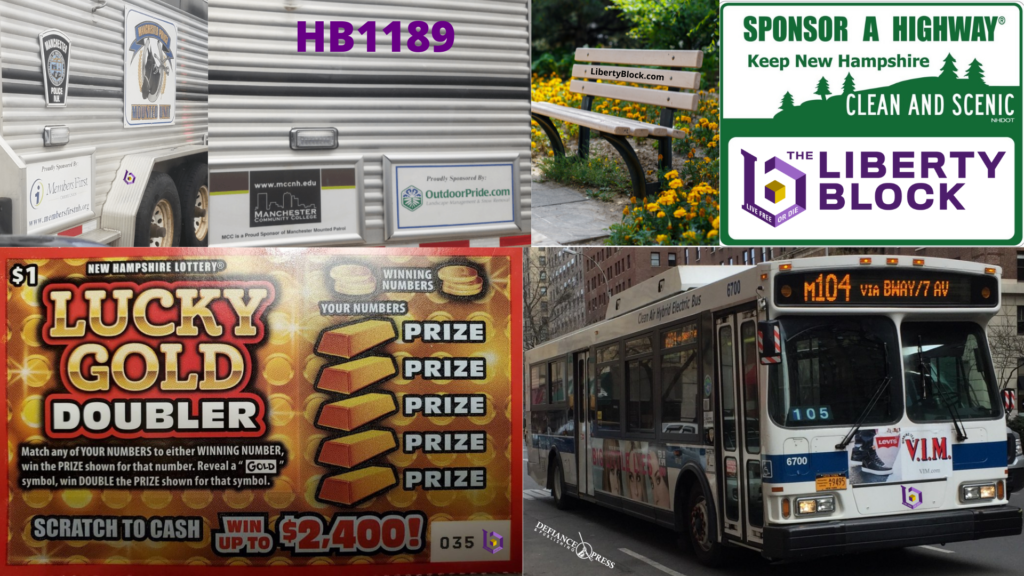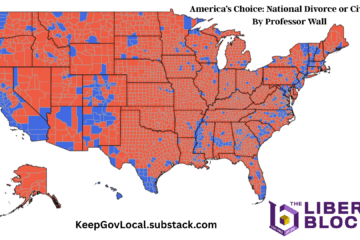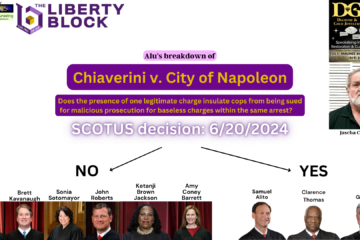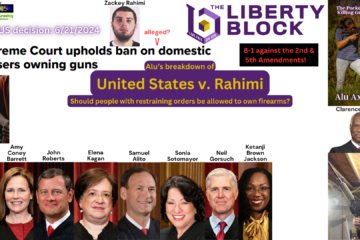In the 1700s, the United States of America separated from Britain. In the 1800s, slavery was outlawed. In the 1900s, women were granted the right to vote. In the 2000s, could mandatory taxation be abolished?
The concept of reducing or eliminating mandatory taxation is often the biggest hurdle for people to overcome when they are presented with the principles of freedom and self-ownership. Many are too frightened by the notion to even consider how it might play out. We are generally educated (largely by the government) in a manner that encourages us to support the antiquated, authoritarian, and depraved practice wherein the government takes money from people by force each time the money changes hands. We are convinced that without the taxation, the sick, elderly, disabled, and even the youth would have no hope of surviving in this world. We learn that government extortion is justified by a ‘democratic’ and ‘fair’ and ‘representative’ voting system. Our voting system may be rigged and it may be authoritarian, but it is certainly not ‘representative’, nor is it ‘fair’.
In addition to their massive federal income tax burden, the average resident of New Hampshire pays around $5,000 per year in property taxes. If you’ve ever been furious about being forced to pay $600 to register your vehicle before being allowed to drive it (on the very roads that you paid for with other taxes) or if you’ve wondered why we are forced to pay $5,000 per year for the privilege or living in the house that you bought, I implore you to consider that the New Hampshire government could raise enough money to fund their state budget (which seems to be around $6 billion per year, presently) without taking money from anyone by force. Indeed, the government can generate revenue without the violent act of coercion or extortion – they already are!
Lottery
Like every other state in the union, the NH government operates a lottery system. Many stores throughout the state sell the state government’s lottery tickets. A quarter of the gross proceeds go to the state budget for education. This program has contributed nearly $2 billion to the state’s education budget since its inception in 1964. Unlike taxation/extortion which is collected using the threat of violence or prison, people purchase lottery tickets of their own volition – whenever they feel like it!
If the government operates more lotteries, improves its efficiency, or spends less money each year, this revenue stream could fund a large portion of the state government’s annual budget.
Fee for service?
While I hesitate to endorse any government entity, especially those which involve themselves in the economy, they do provide another tool that the government could utilize to generate revenue without the use of force. The NH government currently operates 82 liquor stores. Since the prices and products are attractive, they are tax-free, and the selection is large, consumers voluntarily give their money to the government stores in exchange for liquor and wine products. The NH Liquor & Wine stores earned $160 million in profits in 2016.
The NH state government and local governments operate many programs. These programs should fund themselves by simply charging a fee for their usage. This is the basic premise of tolls. If the government wants our money for a service or product, they should play fairly like the rest of society does. They should earn our money. If the government did not steal (property/education) taxes from you, would you voluntarily pay the same amount to send your children to government schools as you would for private schools? I could assume your answer. And that is precisely my point. We all have to earn our money. Why should politicians get away with using monopolies, extortion, and mafia tactics to make their money?
Bonds
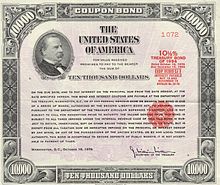
The US government, state governments, and local governments ask for loans from citizens, much like citizens ask for loans from banks. Governments do this by selling ‘bonds’. When a government needs money for a project, they borrow money from individuals for a set interest rate. They sell a ‘bond’ to anyone willing to buy it. The bond has a set timeline and a set interest rate. The bondholder receives regular interest payments and gets his principal investment back when the bond matures. The government gets a loan (without coercion) and the citizen lender gets a predictable interest rate on his investment. Everyone wins and nobody is coerced. Why don’t bonds totally fund all government budgets?
Advertising
In addition to all of the charity that is given by NH residents, at least three societal functions of New Hampshire are currently funded voluntarily.
In partnership with the NH Dept. of Transportation, the ‘Adopt-A-Highway and ‘Sponsor-A-Highway’ programs maintain highways using volunteers and funds generated via advertising. Simply put, businesses pay a set fee per month or supply volunteers for cleanup in exchange for their company name being shown on a sign along the highway. The business receives advertising, the highway remains clean, and nobody is robbed of their hard-earned money.
Currently, Subway, McDonald’s, Dunkin Donuts, IHOP, Denny’s, Whole Foods, Weight Watchers, AAA, Hampton Inn, Waste Management, and many other companies voluntarily do business with Adopt-A-Highway in exchange for advertising. Evidently, these businesses see value in this exchange. If they did not want to spend money on the program, they wouldn’t. When we voluntarily transfer our money to another party, we are inherently affirming that we see more value in the product or service we receive than in the money we pay for it. When you spend a dollar on a coffee, you are essentially telling the cashier that you want the coffee more than you want that dollar bill. When one party uses violence or threatens to use violence, this exchange becomes unbalanced and is no longer moral.
Cleverly utilizing buses, bus stops, and their websites as space for advertising, the Nashua and Manchester transit authorities receive money from businesses that want to place their advertisement in front of hundreds of thousands of commuters. Manchester encourages businesses to ‘Adopt A Site’ in the city, as well. In New York, the MTA makes hundreds of millions of dollars per year by selling prime real estate on their buses and subways to advertisers.
Companies spend nearly 200 billion dollars per year on advertising in the united states. Why wouldn’t governments want to receive their ‘fair share’ of that gold mine? If that isn’t enough incentive, maybe abolishing mandatory, unethical, and inherently violent taxation could encourage the government to step into the future of revenue generation.
Governments could take the concept of advertising a step further, though. Utilizing the same revenue model as millions of YouTube creators, podcasters, and talk-show hosts, they could sell ads in various ways. If they allowed YouTube, for example, to host House and Senate sessions every day, the US government could probably earn billions of dollars a year in ad revenue due to the millions of views such videos would receive. If a child reviewing toys on YouTube could earn $22 million a year from ad revenue, I’m sure the US government – a collection of the 600 (more like a few million) most ‘brilliant’ people on Earth could easily generate a few trillion dollars a year. Keep in mind that the annual budget for the entire US government is only around $5 trillion a year. If our ‘leaders’ made a real attempt to – or if they were forced to – they could surely replace taxation with passive income from ads.
Larry Sharpe recently explained to The Epoch Times in an interview that New York’s uniquely high budget could be funded by uniquely high non-tax revenue. One of his many creative ideas involved leasing temporary naming rights to the state’s many bridges (and tunnels and highways) to private companies who wanted to advertise to millions of commuters each day. Such a policy could likely fund the entire 100 billion-dollar New York budget.
We could take the concept a step further, though! Although we might already fund the whole US government without any taxes, our elected officials could generate surplus money which could be given to the truly needy or to those who have been paying $20,000 to Uncle Sam every year for decades. As we’ve learned from billboards and some government ad sales, any space that is viewed a lot can be utilized (rented out) to advertisers for serious amounts of money. Why are the inner and outer walls of every capitol building plain white? Why aren’t they generating passive income for the government to fund its services? Could you imagine how much Musk or Bezos would pay each year to advertise on such prime real estate?? The government could put every square inch of its property up for bid and raise trillions of dollars without taxation and without violating anyone’s consent!

“That’s great, Alu. But the New Hampshire state budget is like six billion dollars per year. The NH government could never raise that much money without taxation!”, one might argue.
A few rebuttals, if I may:
Firstly, nothing justifies theft or extortion. A ‘6 billion dollar budget’ is a really bad excuse for the violation of property rights. If you are not earning enough money, is the solution to a) minimize expenses, b) improve your product, or c) use violence to obtain more money?
I think that the first and second options could work and are often appropriate. I do not like the violent option, though. Shouldn’t the government be held to the same moral standards that all humans are?
Secondly, the budget could easily be trimmed by a few billion dollars if NH politicians would stop promising to redistribute (an ever-increasing amount of) our hard-earned money to those who choose not to work. It could be trimmed by another $1.5 billion if the state government stopped funding government schools (don’t worry, local governments in NH still spend $3 billion per year on government schools). Ending the forcible redistribution of wealth (welfare) would shave another $500 million per year from the state budget.
Thirdly, the NH government could reasonably raise $6 billion per year by utilizing and expanding upon the methods outlined in this article.
Fourthly, If the citizens felt that politicians were appropriately using the money they were entrusted with, they would donate to the government when they feel it is necessary. If these methods of revenue generation fall short of the proposed budget, there is nothing stopping New Hampshire residents (who happen to be the richest in the nation) from voluntarily writing a check to the state government to close the fiscal gap!
Regardless of whether your justification for mandatory extortion was that it stemmed from necessity or whether you believed that we were truly represented by the current voting system, your defense for taxation has been crushed. Politicians do not represent us. Taxation is not moral. Taxation is not necessary. We now have the 21st-century solution to funding the government. It is time to stand up to the corrupt, immoral bullies who extort our money to enrich themselves. It is time to start respecting property rights. It is time to condemn all violence and theft. It is time for a truly peaceful society.
